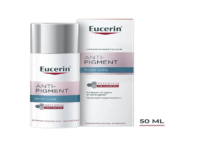6 Ways in Which Carnosine Benefits the Skin

Pursuing healthy, radiant skin has long been a focal point of human care and attention. In this quest, various compounds and ingredients have been explored for their potential benefits, and one such molecule that has gained recognition in recent years is Carnosine. This naturally occurring dipeptide, composed of beta-alanine and histidine, has emerged as a fascinating subject of study and a promising addition to the skincare world. This article explores some benefits of Carnosine to the skin.
1. Anti-Aging Properties
One of the fundamental mechanisms behind Carnosine’s anti-aging effects is its ability to inhibit glycation. This is a process in which sugars bind to proteins, forming advanced glycation end-products (AGEs). AGEs can damage collagen and elastin fibers in the skin, contributing to wrinkles and sagging. Carnosine may help prevent the formation of AGEs, preserving skin elasticity and firmness.
2. UV Protection
UV rays from the sun can generate harmful free radicals in the skin, contributing to oxidative stress and skin damage. With its antioxidant properties, Carnosine can neutralize these free radicals, helping to reduce the oxidative damage caused by UV radiation. UV exposure can harm the DNA in skin cells, leading to mutations that may increase the risk of skin cancer. Carnosine’s protective effects may help reduce UV-induced DNA damage, potentially lowering the likelihood of skin cancer development. Carnosine’s anti-inflammatory properties may help alleviate sunburn and skin redness caused by excessive UV exposure. Reducing inflammation can contribute to a more comfortable and less painful experience following sun exposure.
3. Wound Healing
Collagen is a crucial protein in wound healing, providing structural support to the skin and tissues. Carnosine may promote collagen synthesis, helping build the framework necessary for wound repair. Carnosine’s anti-inflammatory properties help regulate the inflammatory response, reducing excessive inflammation at the wound site and speeding up the healing process.
4. Hydration and Moisture Retention
Carnosine may assist in maintaining the integrity of the skin barrier, reducing transepidermal water loss (TEWL), and enhancing the skin’s ability to retain moisture. Dry skin can lead to discomfort, flakiness, and the appearance of fine lines. Carnosine’s role in preserving skin hydration can help prevent dryness and keep the skin feeling soft and smooth.
5. Protection against Environmental Stressors
Carnosine’s primary function as an antioxidant enables it to neutralize effects of free radicals. By neutralizing these free radicals, Carnosine helps prevent oxidative damage to the skin, reducing the risk of premature aging and maintaining a youthful appearance. Urban environments often expose the skin to air pollution, leading to skin issues like dullness, uneven texture, and clogged pores. Carnosine’s antioxidant properties help mitigate the damaging effects of pollution on the skin, contributing to a more precise and healthier complexion.
While these potential benefits of Carnosine for skin health are promising, individual responses to skincare ingredients can vary. Thus, carnosine-containing skincare products should complement a well-rounded skincare routine that includes sunscreen, proper cleansing, and moisturizing. Consult a dermatologist or skincare specialists for personalized recommendations and determine the best approach to address specific skin concerns.






